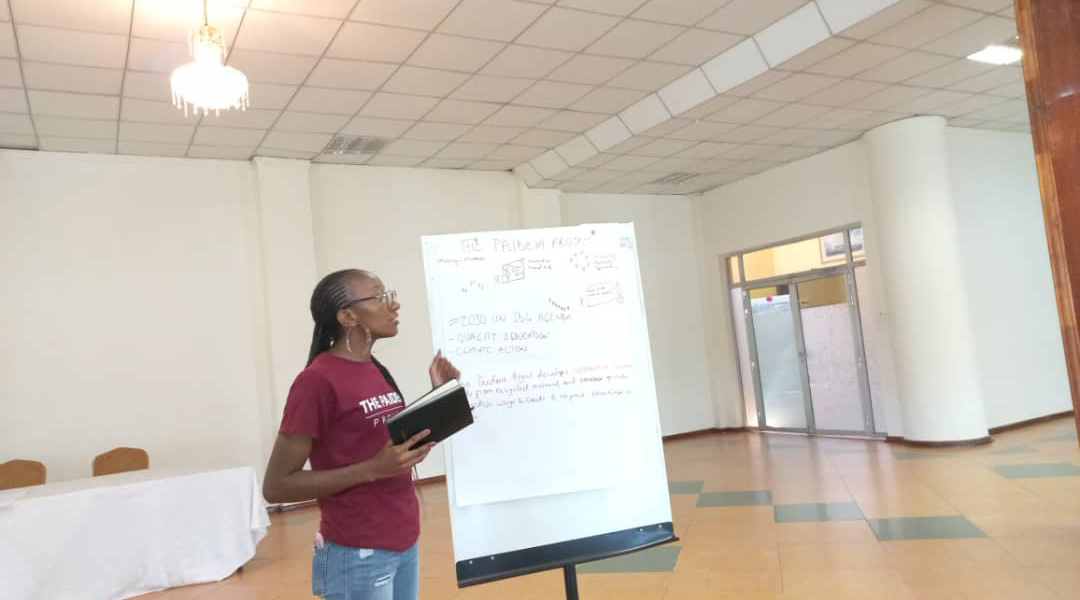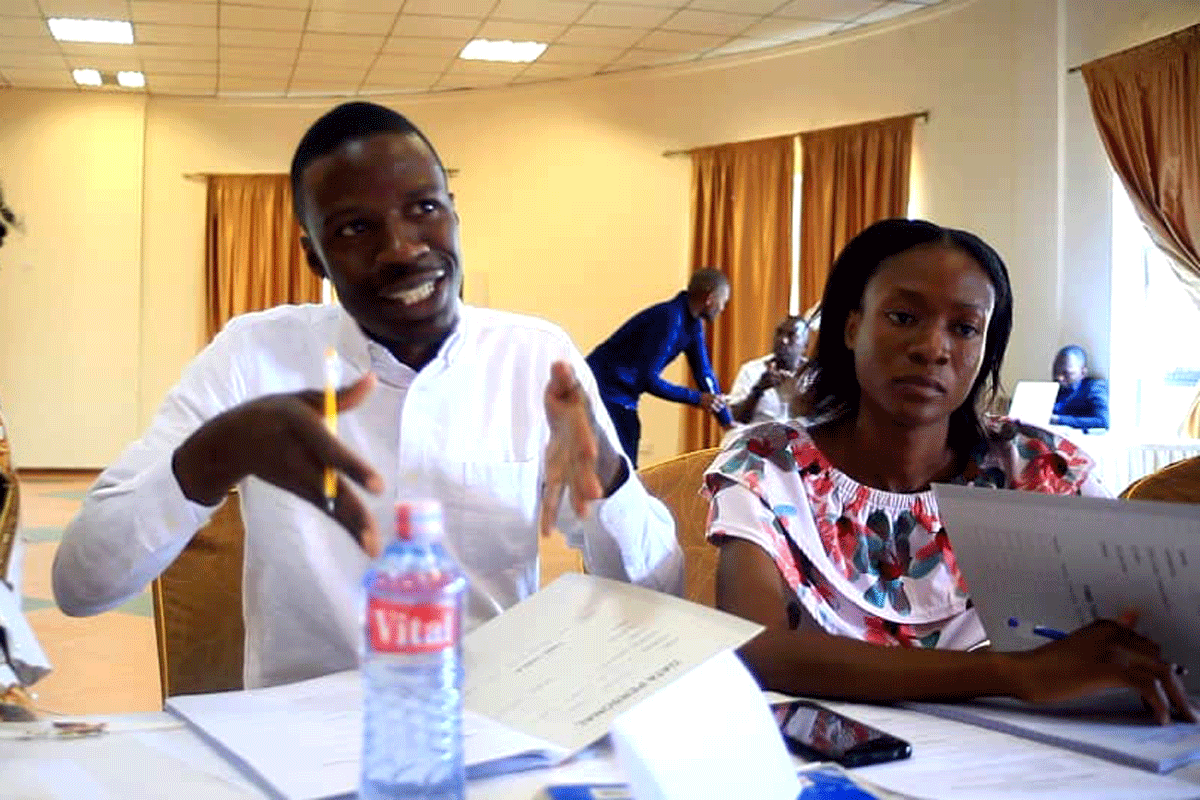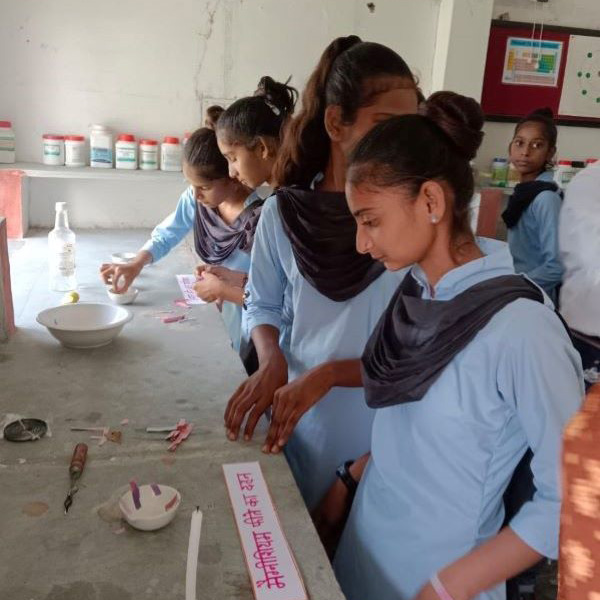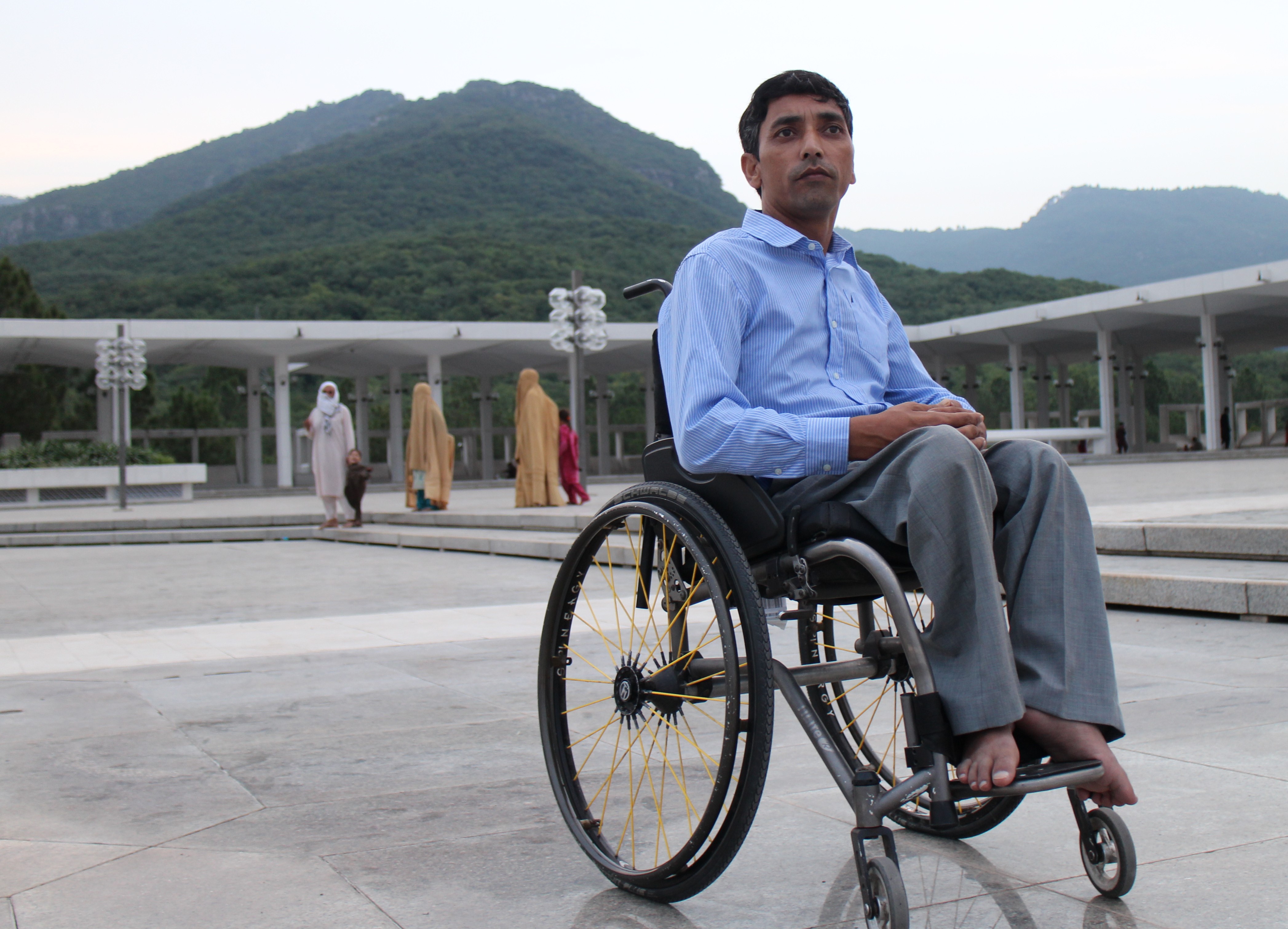Thirty years after Zambian schools eschewed play for an emphasis on structured academic subjects, play is beginning to make a comeback – and this time, it is not staying on the playground. Incorporating play into classroom learning to advance students’ cultural connectivity and academic achievement was the subject of a recent PEAK initiative partner workshop in Zambia’s Copperbelt region.
Playing has long been a significant part of children’s everyday experience in Zambia. For most kids growing up in villages and townships in the 1980s, the only place considered a playfield was the streets, where they played outdoor games with other kids until they were called to their homes to water the gardens or, for those with a household with a television in the neighborhood, bathe in preparation to watch He-Man, She-Ra, or The Littles, cartoon shows popular on national television at that time.
Before the rise of computer games and smartphones, safety in communities enabled children to spend long periods of time outside their homes and playing with their friends. The need to allow time for this social interaction was so well understood that until the early 1990s, physical education (PE) had a dedicated time in public primary schools. For forty minutes, two or three times a week, students would be let out in playfields for semi-supervised play. Not surprisingly, this period was among the most anticipated and well-attended periods, with almost guaranteed full participation.

In 1992, to align with the rest of the world in implementing the World Declaration on Education for All, Zambia introduced a free basic education policy. Among other things, this put pressure on schools to introduce half-time school days to get as many children in school as possible. While running two school shifts each day doubled the number of children who could get an education, it reduced the amount of time that children spent in school, as well as teacher-student contact time. Little time was left for activities that didn’t seem to contribute to the academic performance of children. PE was one of the first activities to be removed from the school day.
Thirty years later, play is making a comeback in Zambian schools, and this time, it is not staying on the playground. Play is making its way into the classroom. With support from the LEGO Foundation, GFC under the PEAK Initiative has partnered with a cohort of eight grassroots organizations in Zambia that incorporate play-based methodologies into their programming to make learning for children joyful and meaningful. Each of these organizations utilizes different play-based methods to achieve its objectives. Na Tubelenge Children’s Library, for instance, uses board games like chess, scrabble, and checkers to attract and engage children and cultivate a love for reading. The Paideia Project develops interactive visual aids from recycled materials to enhance learning, while Kitwe Arts Foundation utilizes native games to model positive behaviors and impart cultural awareness to children.
All eight organizations met for two days in August 2022 in Kitwe, the heart of Zambia’s Copperbelt, to learn from each other and explore opportunities for incorporating native games into their programs as well as for advocating for their inclusion in the formal school curriculum. GFC places a high premium on peer collaboration and learning. During the life of its partnerships with local organizations, GFC encourages and creates opportunities for organizations to learn about and from each other. The rationale is that effective and resilient organizations are built not by transferring knowledge from “experts” but by complementing the genius, expertise, and wisdom many grassroots organizations possess.

Over the two days, there was a collective agreement that Indigenous games reinforce teamwork, communication, and strategic and problem-solving skills, resulting in positive character development from a young age. The task at hand was to figure out how to promote self-structured activities that communicate localized ethnic and sociocultural identity and align with and advance the objectives of academic subjects. The groundwork for this process had already been done by Kitwe Arts Foundation, which traversed all ten Zambian provinces, representing all 72 languages spoken in the country, to collect and document the games that children play. In this way, 144 native games were collected. The meeting culminated in a collective agreement to experiment with implementing the games in the participating organizations to build evidence of their utility in achieving academic objectives.
Reflecting on the two-day workshop, Mwenya Mwamba, the Founder and Project Manager of The Paideia Project, said, “We learned a lot of things here. I am excited to apply native knowledge and games in my organization’s programs. I am even more excited to design visual aids from the games I used to play as a child.”
Kelvin Nsekwila, the Founder of Tusekwile Imiti Ikula, said, “I played a lot of these games as a child for fun. It is interesting to now see how relevant and useful they are to understanding academic concepts. I really look forward to doing this process with the teachers at our school.”
Header photo: Workshop participants playing a strategy and coordination game. © Kitwe Arts Foundation



